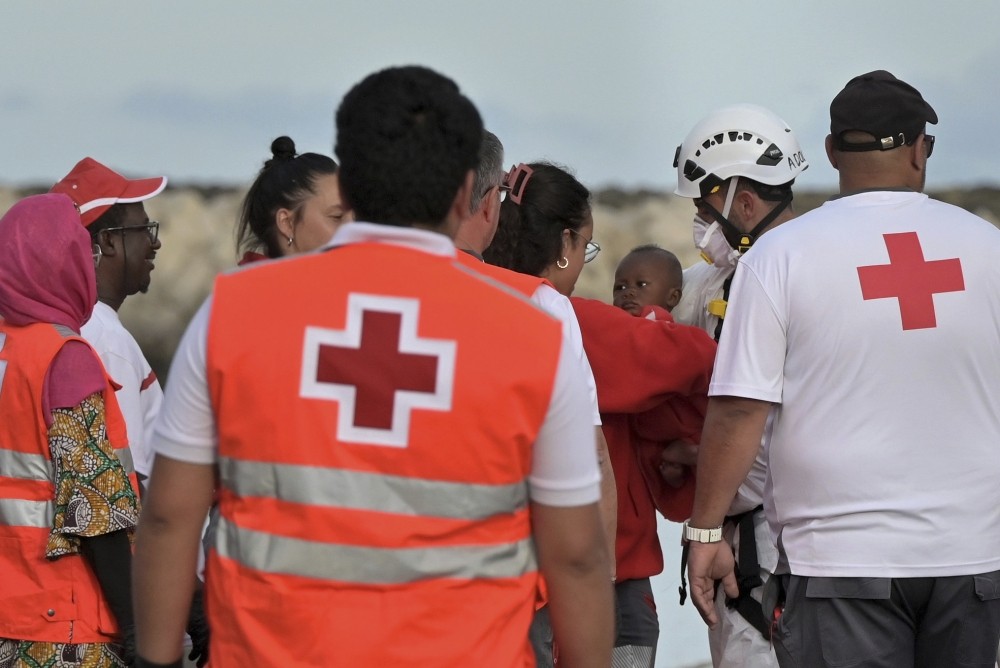24/07/2024
24/07/2024

BARCELONA, Spain, July 24, (AP): The children sometimes won't stop crying. Health workers dealing with migrants arriving on Spain's Canary Islands try to understand if the tears are from illness, injury or, as is often the case, from pure shock.
One young Senegalese boy who disembarked recently kept fainting every few minutes, troubling doctors who couldn't determine the cause. Other migrants finally explained: the boy had witnessed both parents die during the arduous boat voyage from West Africa. Their bodies were thrown overboard into the Atlantic Ocean.
"There's no medicine for that,” said Inmaculada Mora Peces, a 54-year-old emergency doctor who treats migrants arriving on the island of El Hierro.
Mora Peces is among a growing number of people sounding the alarm as the archipelago struggles to deal with thousands of teenagers and children traveling alone to the European Union territory from Senegal, Mali, and other African nations, fleeing poverty, conflict and instability.
Yet on Tuesday, Spain's parliament rejected a legislative proposal that would have forced other regions to take responsibility for some of the minors currently stuck on the Canaries in dire conditions.
The proposal, which sparked a national debate and political crisis, was rejected on Tuesday evening with 177 votes against it, 171 votes for it and 1 abstention.
Under Spanish law, the regional authorities where the children arrive are responsible for their guardianship. But the Canary Islands government says it is overwhelmed, with more than 5,500 minors - far above its capacity for 2,000.
"It’s a humanitarian catastrophe,” said Francisco Candil, a regional government official in charge of social welfare.
Not only do the Canary Islands lack physical space, but the regional government is struggling to hire professionals trained to work with the young migrants on the islands located some 1,300 kilometers (800 miles) from mainland Spain.
As a result, the children and teenagers languishing on the islands are not receiving the protections they are entitled to under Spanish and European law, including education and healthcare. Spanish media have reported overcrowded centers as well as cases of abuse and mistreatment. On the island of Lanzarote, authorities have set up temporary tents to accommodate the new arrivals.


